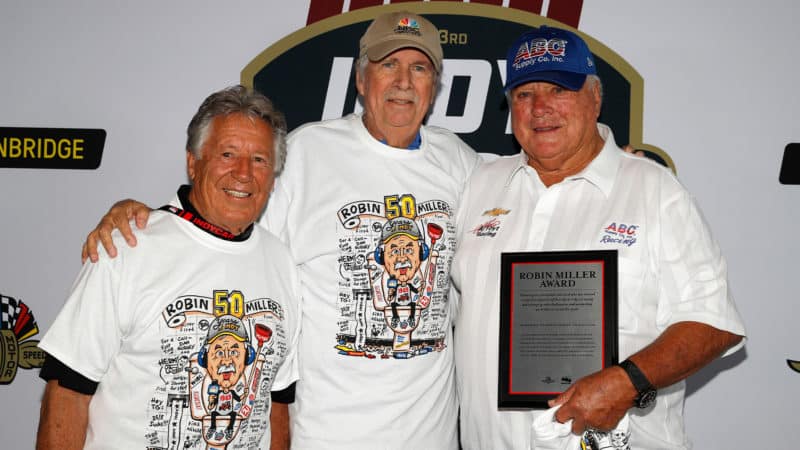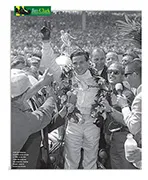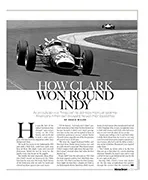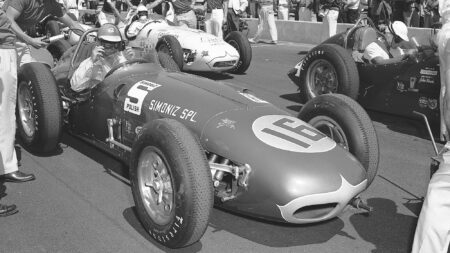“We got to be really good friends over the years because we respect each other,” says Foyt, who plans to have dinner with Miller next week. “Like a lot of people, I didn’t like what Robin wrote at first. But after awhile, I realized that 99 percent of what he wrote was true. I don’t know where in the hell he finds out all the crap he finds. He had a knack for figuring it out or guessing it, and when he guessed, he usually guessed right.”
As a fellow journalist, I’ve been wowed by Miller’s ability to ferret out information from his wide-ranging sources and his willingness to tell the truth no matter how ugly or unpopular it might be. But what I appreciate most about him is that he is, at heart, a fan himself, and he serves, if only unconsciously, as an advocate for the sport he loves so fervently.
Miller is a home-grown Indiana boy who has lived the racing life rather than merely observing it from the media centre. He attended his first Indy 500 when he was 8, and after flunking out of college, he worked briefly at the Speedway for his hero, Jim Hurtubise.
While he was covering the IndyCar beat, Miller bought a midget from Merle Bettenhausen and campaigned it on the Midwestern circuit. He wasn’t a badass – his highest accolade – but he was quick enough to run third in the Hut Hundred before his engine puked, and in his last start, he beat midget hall-of-famer Stan Fox in a heat race.
“First and foremost, he’s a fan… He always said it the way he saw it.”
Along the way, Miller traveled with other racers from track to track. He ate with them, roomed with them, partied with them. Inevitably, he absorbed the ethos of racing, learned the lingo and cataloged the lore. Although his career behind the wheel didn’t last long, his experience has informed everything he’s written about the sport.
At the same time, Miller has never lost his passion for racing, especially the blue-collar variety featured at the bullrings dotting the Midwest. About a decade ago, I accompanied him to Eldora Speedway for a sprint car/midget/Silver Crown car show. Because of all the wrecks, the action didn’t end until 1 in the morning, and it was 2 a.m. by the time Miller finished filming his post-race TV stand-up. But he was still buzzing about the races when we straggled back to Indianapolis, shortly before dawn.




